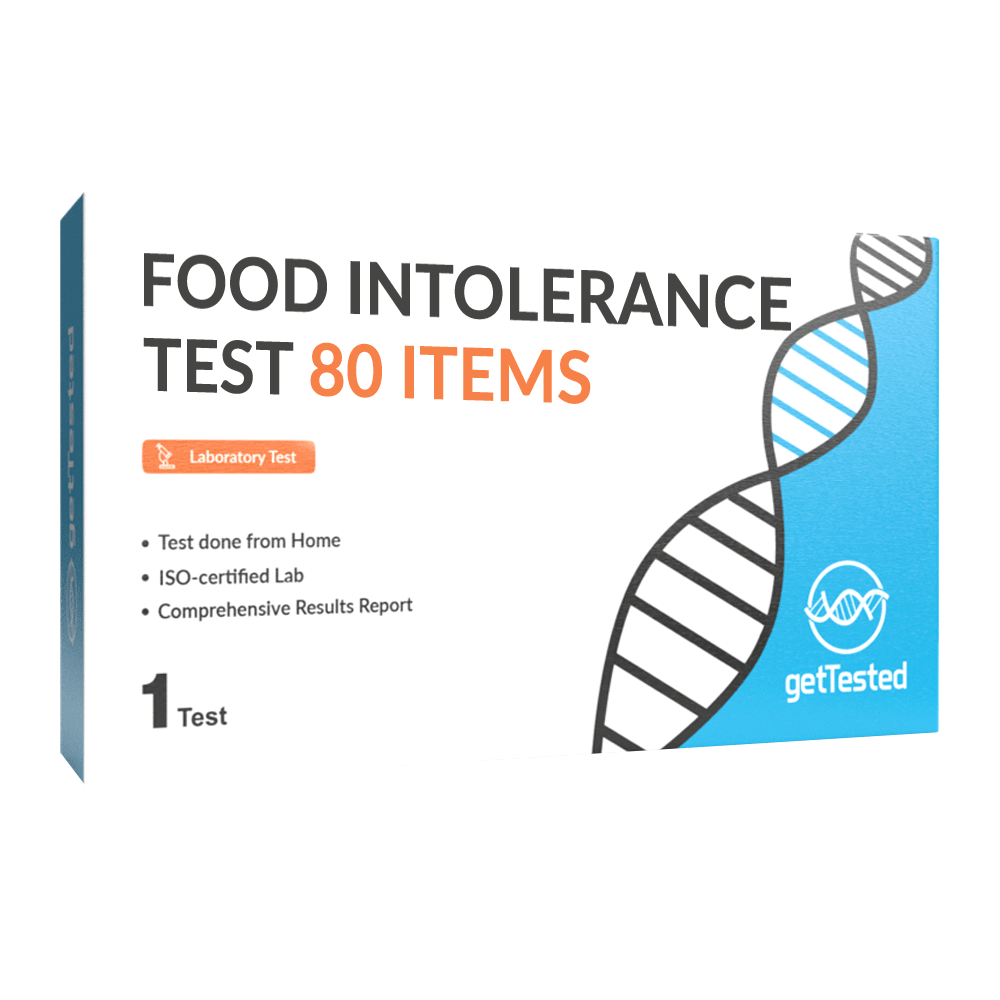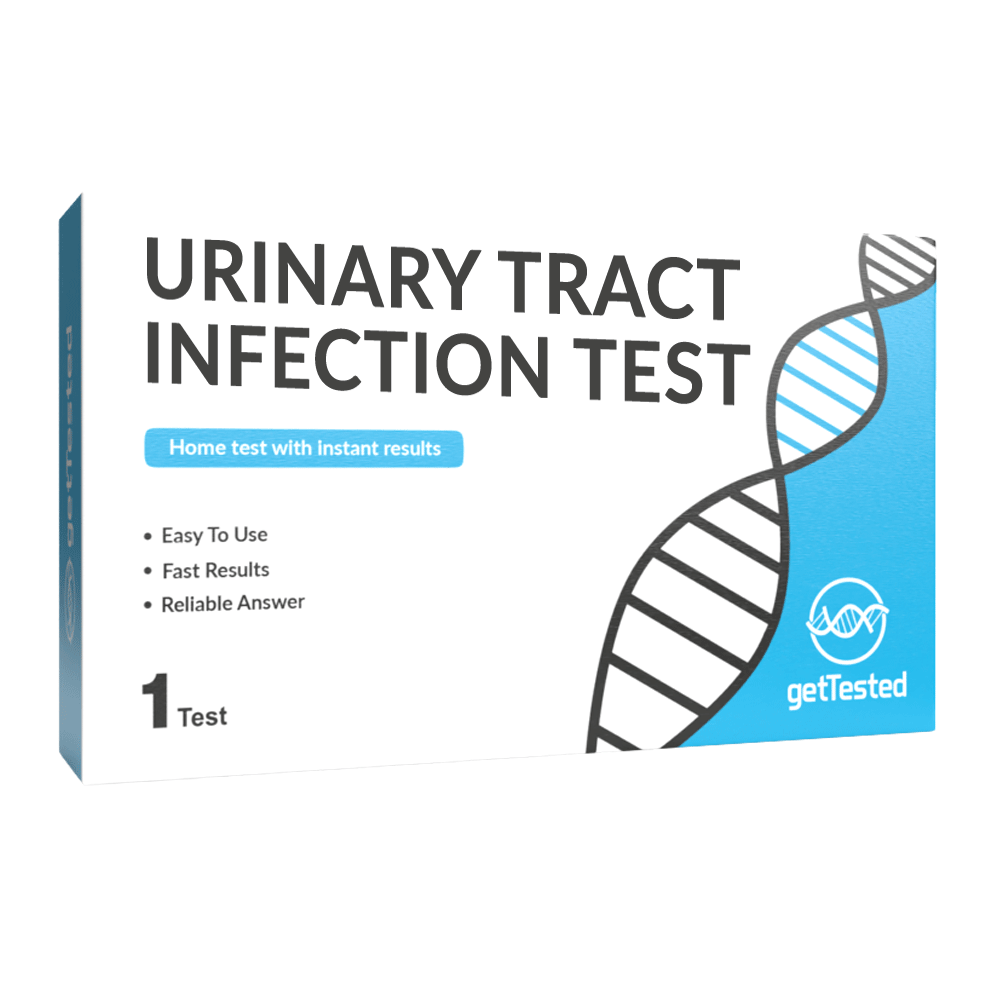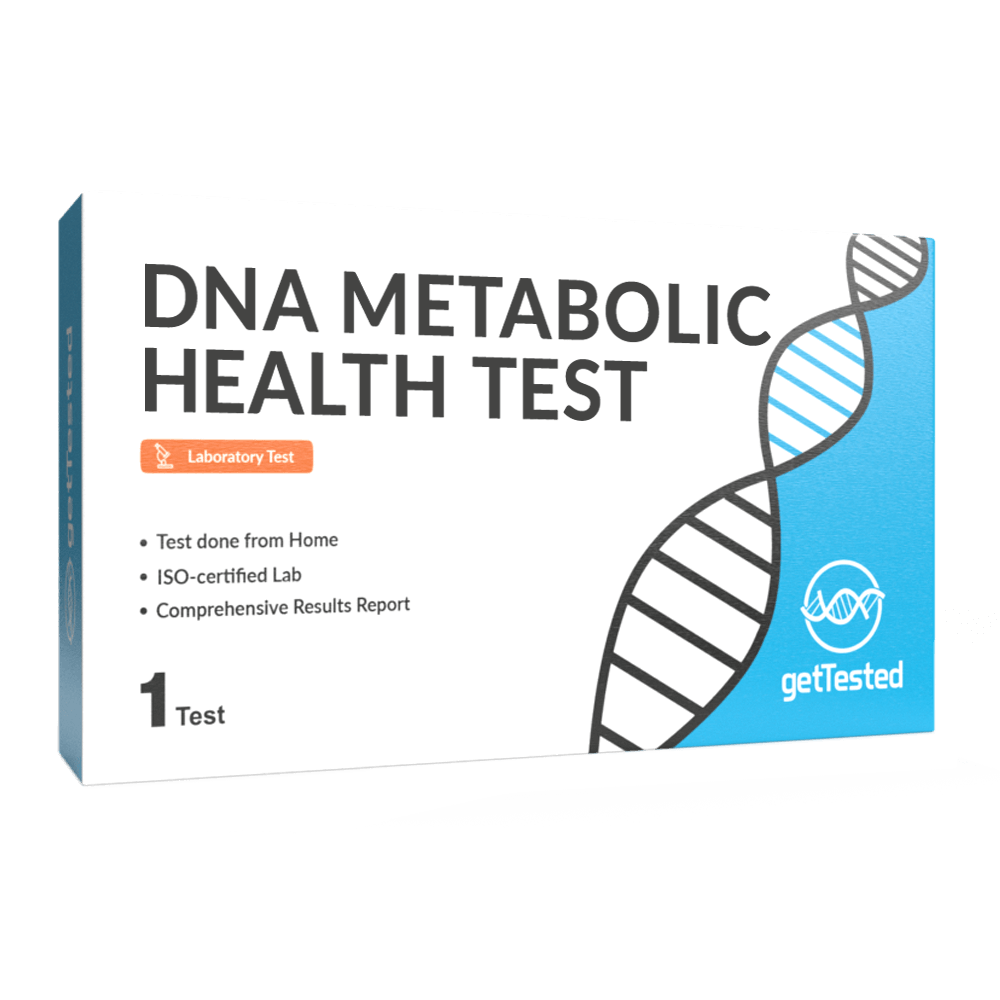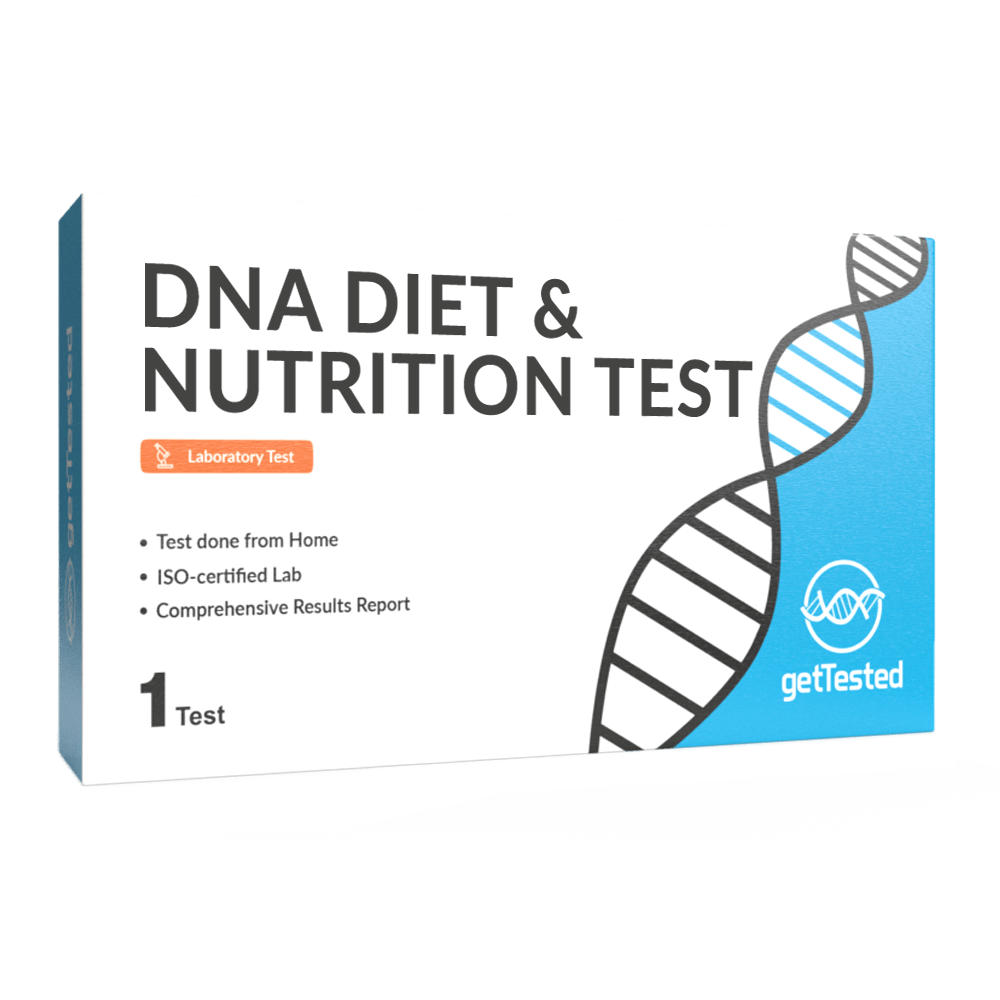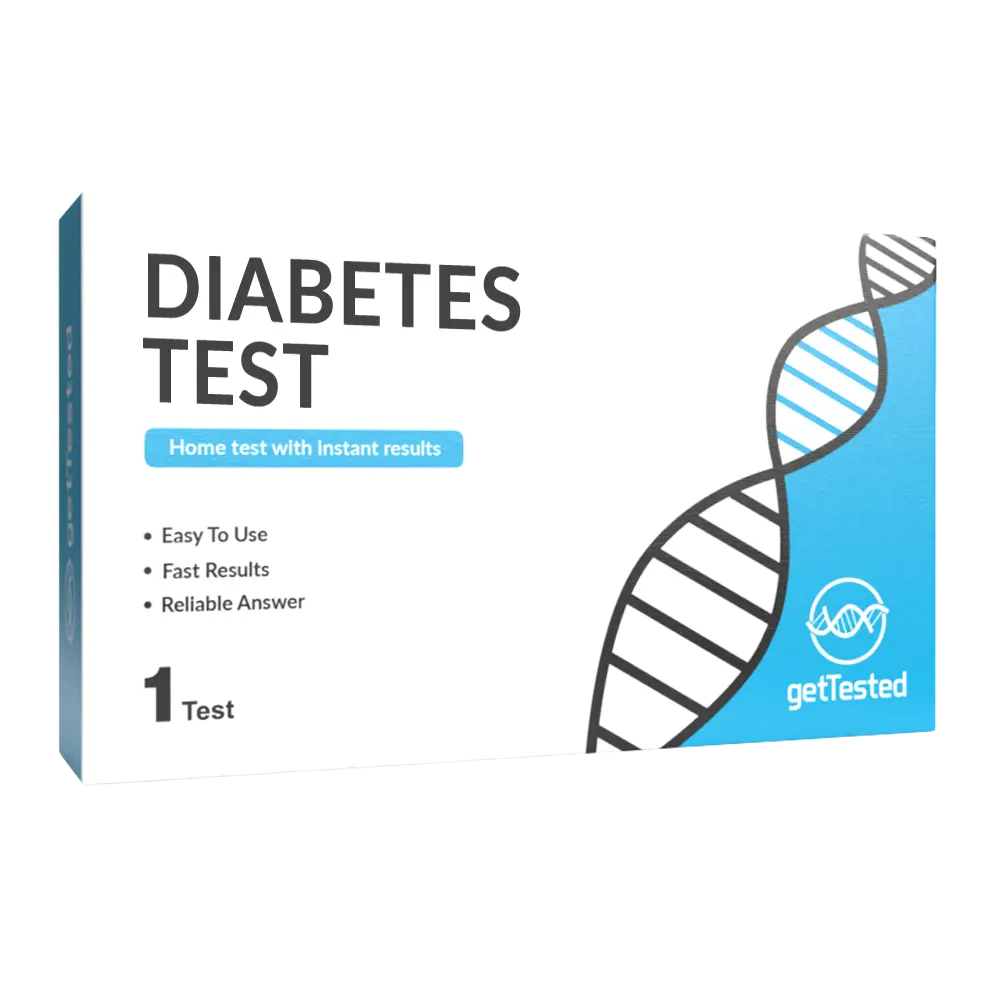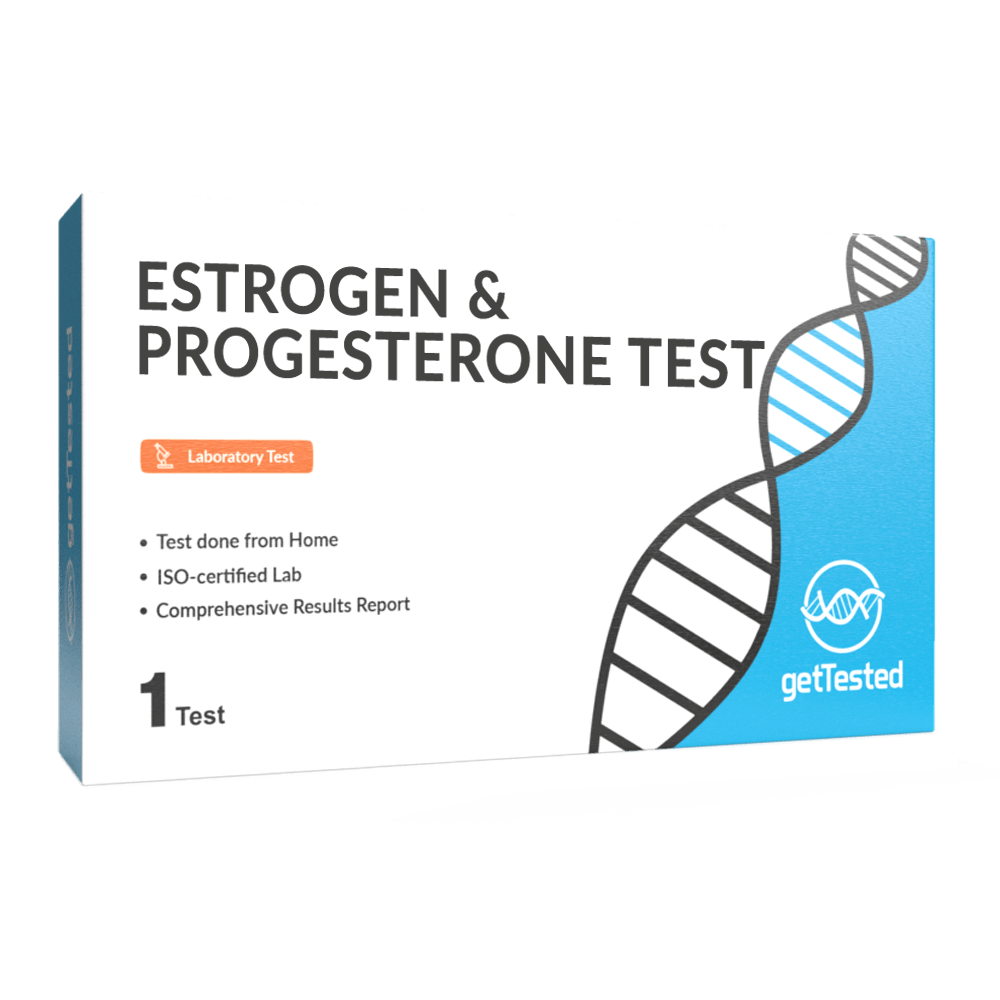Glucose Glucose, a simple sugar, is the primary source of energy for the body's cells. It plays a crucial role in metabolic processes and is critical for brain function, muscle activity, and overall energy. In the bloodstream, the level of glucose (commonly referred to as blood sugar) is tightly regulated by hormones such as insulin and glucagon. Imbalances in glucose levels can lead to conditions like diabetes mellitus, hypoglycemia, and hyperglycemia, affecting overall health and requiring medical management to maintain glucose at healthy levels....
Select another item we test for 2SLC25A2 3-Hydroxykynurenine 5-Hydroxyindoleacetate 9FOXK1 A-TG A-TPO AADAT AAK1 Abalone ABCA1 ABCA6 ABCB4 ABCC5 ABCG2 ABCG5 ABHD2 ABLIM1 ABO ABT1 ABTB1 Acacia ACAN Acarus siro ACE ACKR1 ACKR1 ACKR2 ACOXL ACP1 ACTL7B ACTN3 ACVR1 ACYP2 ADAL ADAM10 ADAM15 ADAM17 ADAM32 ADAMTS10 ADAMTS16 ADAMTS18 ADAMTS8 ADAMTSL1 ADAMTSL3 ADARB1 ADARB2 ADCY3 ADCY5 ADCY6 ADGRB1 ADGRG6 ADGRL2 ADGRL3 ADGRL4 ADH1A ADH1B ADH1C ADH4 Adipate ADM ADO ADRA1A ADRA2A ADRB2 ADRB3 Adrenaline/Epinephrine AEBP2 AFF3 AGA AGBL1 AGMO AGPAT2 AGPAT5 AGT AHI1 AHSG AK9 Akkermansia muciniphila AKNA AKR1A1 AKR1E2 AKT3 Alanine Alaska pollock Albumin ALCAM Alcohol Alder ALDH1A2 ALDH2 ALDH7A1 ALG13 Allspice Almond Almond, Pine Nut, Sunflower Seed ALOX15 ALOX5AP ALP (Alkaline phosphatase) Alpha-1 antitrypsin Alpha-ketoglutarate Alpha-linolenic acid (ALA) ALPK1 ALPL ALT (Alanine Aminotransferase) ALT (SGPT) Alternaria Alternata Aluminium ALX4 Amaranth AMBRA1 AMBRA1 AMN1 Amphetamine AMY1A Amylase ANAPC4 Anchovy ANGPTL4 ANKH ANKK1 ANKRD30A ANO3 Anti-Müllerian Hormone (AMH) Antimony AOC1 AP2A2 AP3B2 APBB1IP APCS APEH APOA1 APOB APOBEC1 APOC1 APOC4 APOE APOH APP Apple Apricot AQP10 AR Arachidonic acid (AA) ARAP2 Arginine ARHGAP20 ARHGAP21 ARHGAP27 ARHGAP32 ARHGAP9 ARL14EP ARL4A ARL4C ARPC1B ARRB1 ARRDC3 ARSA ARSB Arsenic Artichoke AS3MT ASB13 ASB2 ASB3 ASCC3 Ash (pollen) ASIP Asparagine Asparagus Aspartic acid Aspergillus Fumigatus ASPRV1 ASTN2 ATF7 ATG12 ATP10B ATP1B2 ATP1B3 ATP2B2 ATP2B4 ATP5MK ATP5PD ATP8B1 ATP8B2 ATP9A ATXN1 Aubergine AUTS2 Avocado AXIN2 AZIN2 B3GALNT1 B3GNTL1 B4GALT6 BACH2 Bacteria Bacteriodes Bahia grass (pollen) BAIAP2L1 Baker’s yeast Banana BANK1 BARHL2 Barium Barley Basil Bay leaf BBX BCAT1 BCL11A BCL11B BCL2 BCL2L1 BCO1 BDNF Bee venom Beef Beetroot BEND5 Benzodiazepines Bermuda grass (pollen) Beryllium BET1L Beta-alanine Beta-hydroxybutyrate Betaine BHLHE40 BHLHE41 BHMT BHMT2 Bifidobacterium Bile acids Bilirubin BIN1 Biotin Birch (pollen) Bismuth Black caviar Black pepper Black radish Black tea Blackberries Blackcurrant Blastocystis hominis BLMH BLOC1S2 Blood (urine) Blue Mussel, Oyster, Clam, Scallop Blueberry BMP2 BMP6 BMPR1B BNIP5 Boiled milk Boletus BORCS7 Boron BRAF Brazil nuts BRINP1 BRK1 Broad beans Broccoli BRSK2 Brussels sprouts BSN BTBD7 BTG1 BTN2A2 BTN3A2 Buckwheat Buffalo milk Buprenorphine Button mushroom C10ORF53 C10ORF67 C11ORF21 C12ORF43 C16ORF82 C19ORF12 C1D C1ORF87 C1QL3 C1QTNF6 C2CD4B C6ORF47 C8ORF37 CA2 CA3 CA8 Cabbage Cacao CACHD1 CACNA1D CACNB2 CADM1 CADM2 Cadmium Calcium CALCRL CALM1 Calprotectin Camembert CAMK1D CAMK1G CAMKMT Camomile tea Candida albicans Candida spp Cane sugar CANT1 Cantaloupe melon Caper CAPS CARD9 Cardamom CARMIL1 Carnitine Carob (locust bean) Carp Carrot Casein Cashew nut CASQ2 CASS4 Cat dander Catfish Catnip CATSPER2 Cauliflower CAV1 CAVIN1 CBLB CBLL1 CBS CCBE1 CCD (Cross-reactive Carbohydrate Determinants) CCDC138 CCDC141 CCDC158 CCDC167 CCDC170 CCDC171 CCDC179 CCK CCL8 CCND1 CCND2 CCND3 CCR2 CCR3 CCR7 CD101 CD151 CD200R1 CD28 CD36 CD40 CD44 CD96 CDC42SE1 CDC5L CDH12 CDH19 CDH23 CDH6 CDH8 CDK17 CDK6 CDKAL1 CDKL2 CDKN1C CDKN2A CDKN2B CDKN2D CDO1 CEBPA Celery CELF2 CELF4 CENPW CEP120 CEP63 CERS6 CETP CFH Chanterelle CHAT CHD1L CHD6 CHDH Cheddar cheese Cherry Chestnut Chicken Chickpeas Chicory CHL1 Chlamydia Chloride CHMP3 CHODL Cholesterol Cholesterol:HDL Ratio Choline CHRM2 CHRM2 CHRM3 CHRNA4 CHRNB2 CHRNB3 Chromium Cinnamon Cis-aconitate CITED2 Citramalate Citrate Citrulline Citrus mix CK (Creatine Kinase) CKM Cladosporium herbarum (Mold) CLDN11 CLEC12A CLGN CLMP CLOCK Clostridium Clove CLPTM1 CNDP1 CNDP2 CNIH3 CNOT2 CNOT4 CNR2 CNTLN CNTN2 CNTN5 CNTNAP2 CNTNAP5 Cobalt Cocaine Cockroach Cocoa Coconut Cod Coenzyme Q10 Coffee COG1 COG6 COL11A1 COL13A1 COL27A1 COL2A1 COL5A1 COLEC12 Common Pigweed Common Ragweed Common sole COMT COPB1 COPB2 Copper Copper Copper/Zinc ratio COPS9 COQ5 Coriander seeds Corn Cortisol Cottage cheese Cottonwood Cow’s milk COX7C CPED1 CPLANE2 CPPED1 CPS1 CPXM1 CPXM2 Cranberry Crayfish Cream Cream cheese Creatinine CRHR1 CRHR2 CRIPT CRP CRTC3 CRYBB2 Cryptosporidium spp. CSDC2 CSF3R CSGALNACT1 CSK CSMD1 CSMD3 CSNK1G1 CSNK2A1 CST7 CSTA CTBP2 CTDSPL2 CTLA4 CTNNA2 CTRC CUBN Cucumber Cultivated Rye Cumin Curry (spice) CWF19L2 CXCL5 CXCL5 CXCR2 CXCR2 CXCR4 CYBA Cyclospora cayetanensis CYP19A1 CYP2C9 CYP4F11 CYP4F2 CYP4V2 Cypress (pollen) Cystathionine D-arabinitol D-dimer D2HGDH DAAM2 DAB1 DACH1 DACT1 Dandelion DAP Date DBX1 DCAF4 DCDC2 DCDC2B DCDC2C DCSTAMP DDI1 DDX58 Deer DEF8 Dermatophagoides farinae (D. farinae) Dermatophagoides pteronyssinus (D. pteronyssinus) DES DEXI DGKB DHEA DHEA-S DHFR Diamin oxidase (DAO) DIAPH3 Dientamoeba fragilis Dihomo-gamma-linolenic acid (DGLA) Dill Dinkel DIO1 DIO2 DIO3 DIPK2A DKK1 DLC1 DLEU7 DLG2 DLG5 DLK1 DMBX1 DNAJA4 DNAJB4 DNMT3B DOCK10 DOCK3 DOCK9 Docosahexaenoic acid (DHA) Docosapentaenoic acid (DPA) Dog dander DOK5 DOK6 Dopamine DPEP1 DPPA2 DPY19L3 DPYSL5 DRD1 DRD3 DRD5 DSP DTWD2 Duck Durum wheat DUSP15 Dwarf Tapeworms ECHDC3 EDA2R Edamer cheese EDAR EDNRA Eel EFNA5 EGFLAM eGFR (Estimated Glomerular Filtration Rate) Egg white EGLN2 EGR2 EHD3 Eicosapentaenoic acid (EPA) EIF3M EIF4A1 EIF4G3 ELAVL2 ELFN2 Emmentaler cheese ENG ENOSF1 ENOX1 ENPEP ENPP4 Entamoeba histolytica Enterobacter Enterococcus Enterocytozoon spp. / Encephalitozoon spp. EPAS1 EPB41L4A EPDR1 EPHA5 EPHB2 EPM2A EPS8L3 ERBB4 ERBIN ERG ERI1 ERMP1 Escheria coli Escherichia coli Biovare ESD ESR1 ESR2 Estrogen (estradiol) Estrogen/Progesterone ratio Ethyl malonate ETS1 ETS2 ETV3 EXD3 EXOC1L EXOC5 EXTL2 FAAH FAAP24 FABP2 FADS2 Faecalibacterium prausnitzii FAM160A2 FAM171A1 FAM216B FAM227B FAM240C FAM53A FAM9A FANCA FANCC FANCI FAP FAR1 FARP2 FARSA FBH1 (FBD4) FBLL1 FBLN5 FBOX21 FBXL17 FBXO21 FBXO24 FBXO8 FCER1A FCER1A FCER1G FCGR3A FCHO2 FCHSD2 FCRL3 FCRL6 FDX1 Fecal occult blood Fennel Fentanyl FERD3L Ferritin FFAR4 FGD4 FGF10 FGF13 FGF5 FGFR2 FGGY FHIT FHOD3 FIBIN FKBP4 Flaxseed FLG FLNB FLT3 FLT3 FMN2 FMO2 FMO4 FN3KRP Folate (folic acid) FOLH1 FOXA2 FOXJ2 FOXK1 FOXO3 FOXP1 FOXP2 FOXQ1 FPR1 FRA10AC1 Free Chlorine Free T3 (fT3) Free T4 (fT4) FRMD4B Fructose intolerance FRY FSH FSHR FTO FUCA1 FUT2 FUT3 FUT5 FYB2 FZD1 FZD10 FZD4 FZD8 G2E3 G6PC2 GABA GABPB1 GAD2 GADL1 Gadolinium GAL GALNT13 GALNT2 GALNT3 Gamma-linolenic acid (GLA) Gardnerella GAREM2 Garlic Garlic/ Onion GATA2 GATA2 GATA3 GBE1 GBP3 GC GCK GCKR GCNT1 GCSAML GDPD5 Geotrichum candidum GFI1 GFI1B GGT GHRL Giardia lamblia GIGYF1 Ginger GIPR GJA10 Gliadin GLIS1 GLIS3 GLO1 Globulin GLP1R GLRB GLRX3 Glucose Glutamate Glutamic acid Glutamine Gluten Gluten Sensitivity Glycine GLYCTK GNAQ GNB3 GNB5 GNG11 GNGT2 GNL3 GNMT GNPDA2 Goat’s milk Goat’s milk cheese Gold Goldenrod GOLGA8B GOLT1A Gonorrhea Goose GOT Gouda cheese GP2 GPD2 GPM6A GPR139 GPR151 GPR158 GPR25 GPR26 GPR83 GPSM1 Grain GRAMD2B Grape Grapefruit Green beans Green olives Green Peas Green tea GRIA1 GRIK2 GRIN3A GRINA GRM1 GRM5 Gruyère cheese GSDMB GSDMC GSK3B GSTM3 GSTP1 GTPBP10 GUCY2F Guinea Pig GYPC GZMB GZMH H2BC1 H2BC5 H3C12 H3C6 H4C13 HACD4 Haddock Hafnia Hake Halibut Hamster HAPLN1 HASPIN Hazel Hazelnut Hazelnut (pollen) HbA1c HBZ hCG HCN4 HDHD2 HDL (High-Density Lipoprotein) Helicobacter pylori HERC2 Herring HES6 HFE HGF HHEX Histamine in Stool Histidine HIV HIVEP2 HLA-A HLA-B HLA-C HLA-DMA HLA-DPA1 HLA-DPB1 HLA-DQA1 HLA-DQA2 HLA-DQB1 HLA-DRA HLCS HMCN1 HMGA2 HMGCS2 HMX3 HNF4A HNF4G HNMT HNRNPA1P48 HNRNPUL1 Holotranscobalamin HOMER1 Homoarginine Homovanillic acid Honey Honeydew melon Hookworms Hops HORMAD1 Horse Horse meat Horseradish House Dust HP1BP3 HPCAL1 HPRT1 hs-CRP HS3ST4 hsCRP HSD17B11 HSD17B13 HSPA13 HTR2A HTR2C HTR5A HUNK Hydrogen Hydrogen Sulfide Hydroxymethylglutarate ICA1L ID2 ID4 IDO (enzyme) IFIH1 IFITM2 IFNA13 IFNK IFNLR1 IGF1R IGF2 IGFBP3 IgG Antibodies IGLV4-60 IgM Antibodies IKBIP IKZF1 IKZF2 IL12B IL13 IL13 IL16 IL17RA IL18R1 IL1B IL1RL1 IL23R IL2RA IL33 IL34 IL4R IL5RA IL6 ILRUN INAVA Influenza A Influenza B INHBC INPPL1 INSIG1 INSR Iodine IREB2 IRF4 IRF8 Iron IRS1 IRX2 IRX6 ISCA2 ISL1 Iso-leucine Isocitrate ITGA1 ITGA4 ITGB8 ITIH1 ITIH3 JAG1 JAK2 JAKMIP2 JAML JAML Japanese Cedar Japanese Hop JAZF1 JCAD JHY JUP Kale Kamut KANSL1 KAT2B KAT6B KATNIP KAZN KCND3 KCNIP4 KCNJ11 KCNJ3 KCNK17 KCNK2 KCNK9 KCNMB3 KCTD1 KCTD15 KCTD9 KDR KDSR KEL Kelp Ketamine Ketones KIAA0825 KIAA1109 Kidney beans KIF17 KIF1A KIF26B KIF2B King crab KISS1R KIT Kiwi Kiwi, Mango, Banana KIZ KL Klebsiella KLF14 KLF6 KLRK1 KMO (enzyme) KNDC1 Kohlrabi KRT72 KRT73 KRTAP7-1 Kynurenic acid Kynurenine L3MBTL1 Lactate Lactobacillus Lactose intolerance LAMA4 LAMA5 Lamb LAMP3 LANCL1 LARP4B Latex LAX1 LBP LCE3C LCK LCT LDL (Low-Density Lipoprotein) LDL/HDL Ratio LDLRAD3 Lead Leek LEMD3 Lemon Lemon balm Lentils LEP LEPR Lettuce Leucine Leukocytes (urine) LGALS14 LGR4 LGSN Licorice Lime LIN28B LIN7C LINGO1 LINGO2 LINGO4 Linoleic acid (LA) Litchi Lithium LMCD1 LMF2 LMNB1 Lobster Lobster/Pacific squid LONP2 LPA LPCAT2 LPIN2 LPL LPP LPP LRAT LRATD1 LRFN5 LRRC31 LRRC32 LRRC37A LRRC3B LRRC4 LRRC42 LRRC4C LRRC6 LRRC7 LRRN1 LRRN2 LRRTM4 LRTM1 LSAMP LSR LTBR Lumpfish caviar LURAP1 Luteinizing Hormone LY6K LYRM7 Lysine LYST LYST LYZ Macadamia nuts MACF1 Mackerel MACROD2 MAF MAGI3 Magnesium Magnesium/Calcium ratio Malate Malt MAML3 MAN1A2 MANBA Manganese Mango MAP2K5 MAP3K1 MAP3K10 MAP4K1 MAP4K5 MAP7 Maple Leaf Sycamore MAPRE1 MAPT MARCO Marijuana MAT1A MC4R MCFD2 MCPH1 MCUR1 MDFI MDFIC MDFIC2 MDGA1 MDM1 ME1 Meat (pork, beef, chicken, lamb) MECOM MEF2C MEGF9 MEIS1 Melatonin Mercury Methadone Methamphetamine Methane Methionine Methylmalonic acid (MMA) METTL11B METTL14 METTL21C MFF MFHAS1 MFSD10 MGA MGMT MICAL2 MICB Millet Mite MITF MKNK2 MLKL MLXIPL MME MMP15 MMUT MN1 Molybdenum MON1B Monounsaturated fatty acids MORC2 MORC4 Mouse/Rat MOV10L1 MOXD1 Mozzarella MPC1 MPHOSPH6 MPO MPPED1 MPZL2 MRM2 MRO MROH2A MROH8 MRPL39 MRPS18C MRPS31 MRPS9 MS4A13 MSRA MSRB2 MST1 MSTN MT1X MTAP MTARC1 MTCH2 MTDH MTHFD1 MTHFD2 MTHFR MTMR7 MTNR1B MTR MTRES1 MTRR MTX1 MUC1 Mugwort (pollen) Mung beans Mussels Mustard MXRA8 MYBPC3 MYC Mycoplasma (MG) Mycoplasma (MH) MYEOV MYH11 MYH15 MYH6 MYLK MYO18A MYOM1 MYPOP MYRIP Myristic Acid (MA) NAA38 NAA38 NAA38 NADSYN1 NANOS1 Napa cabbage NAV1 NAV3 NBDY NBPF3 NBR1 NCAM1 NCF4 NCF4 NCK2 NCLN NCLN NCOR1 NCR3 NDRG2 NDUFA11 NEBL Nectarine NECTIN2 NEDD4L NEGR1 NELL1 NEO1 New World Hookworm NFATC2 NFE2 NFIA NFKBIE Nickel Nicotinamide Nicotinamide adenine dinucleotide (NAD) Nicotinic acid NIPSNAP3A Nitrates (urine) Nitrates and Nitrites NKAIN3 NKX2-1 NKX2-3 NLGN1 NLRC5 NMRK1 NNMT NNT Non-HDL Cholesterol Noradrenaline/Adrenaline ratio Noradrenaline/Norepinephrine NOS1 NOS3 NOTCH1 NOTCH4 NOX4 NPC1 NPSR1 NQO1 NR1H3 NR2F2 NR3C1 NR3C2 NR4A2 NR5A2 NRBF2 NRDE2 NRG1 NRIP1 NRP2 NRSN1 NRXN1 NSG1 NSG2 NSMAF NSMCE1 NSUN3 NT5C2 NT5DC2 NTM NTN5 NTSR2 NUAK1 NUDT12 NUDT2 NUDT9 NUP62CL NUP93 Nutmeg NVL NWD2 Oak OAT Oats Octopus Oleic acid (OA) OLFM3 OLFM4 OLIG1 Olive (pollen) Omega-3 Index Omega-6 / Omega-3 Ratio Onion OOSP1 OPCML Opiates OPTC OPTN OR10J1 OR10J5 OR13F1 OR2B6 OR2M3 OR5H14 OR7A17 OR7A5 Orange ORC5 ORM1 ORMDL3 ORMDL3 ORMDO3 Ornithine OSR1 Ostrich OTOP1 OTUD1 OVOL1 Ox-eye Daisy OXTR Oxycodone Oyster Oyster mushroom P2RY1 P2RY12 PACC1 PAFAH1B2 Palladium PALM Palmitic acid (PA) Palmitoleic acid (PLA) PAM Pancreatic elastase Papaya PAPLN PAPPA PAPSS2 PARD3B Parmesan Parsley Passion fruit PATJ PAX1 PAX2 PAX5 PBRM1 PCCB PCDH15 PCDH20 PCDH7 PCDH8 PCNX3 PCSK2 PDCD6IP PDE10A PDE2A PDE3A PDE3B PDE4C PDE5A PDE6C PDE8B PDGFB PDIA5 PDSS1 PDZD2 Peach PEAK1 Peanuts Pear Pecan PEMT Penicillium notatum Peppermint Perch Persimmon PEX11A PEX2 PFKFB3 PFKL PFKM PFKP PGLYRP2 PGPEP1 pH Level pH value PHACTR2 PHACTR4 Phenylalanine PHF14 PHKB Phosphorus PHYHIPL PIEZO1 PIGN PIK3AP1 PIK3C2A PIK3R1 Pike Pike-perch Pine nuts Pineapple Pinworms PIP5KL1 Pistachios PITX1 PITX2 PKD2L1 PKD2L2 PKNOX1 PKP4 PLAAT1 Plaice Plaice/Anchovy/Alaska Pollock Plantain Platinum PLAUR PLAUR PLCB1 PLCG2 PLEKHG1 PLEKHM1 PLN PLPPR4 PLTP Plum PMAIP1 PMM1 PNKD PNPLA3 POC1B POCD5 POGZ POLK POLM POLR1F POLR3A Polyunsaturated Omega-3 fatty acids Polyunsaturated Omega-6 fatty acids POM121 Pomegranate Pomelo PON1 PON2 Poppy seeds Pork Potassium Potassium/Calcium ratio Potassium/Sodium ratio Potato POU2F3 POU3F3 POU5F2 PPA2 PPARA PPARG PPARGC1B PPFIA2 PPIF PPIL1 PPM1F PPP1CB PPP1R17 PPP1R3B PPP2R3C PPP3CA PPP6R2 PRB2 PRDM16 PRDM5 PRDM6 PRDM8 PRELID1 PREP PRG4 PRICKLE1 PRIMA1 PRKAG2 PRKCE PRKG1 PRLR Progesterone Prolactin Proline Protein (urine) Proteus PROX1 PRR11 PRR16 PRR5L PRRC2A PRSS1 PRSS16 PRSS3 PRSS37 PRTFDC1 PRXL2A PSA PSA free PSA ratio PSAP PSCA PSD3 Pseudomonas PSG9 PSMA1 PSMC1 PTBP2 PTER PTGER3 PTGER4 PTHLH PTPMT1 PTPN22 PTPN7 PTPRC PTPRD PTPRJ PTPRM PTPRT Pumpkin Pumpkin seeds PVR PWWP3B Pyruvate QSOX2 Quail Quantitative Determination of Fat Quantitative Determination of Nitrogen Quantitative Determination of Sugar Quantitative Determination of Water Quark Quinoa Quinolinic acid R3HCC1L RAB11FIP2 RAB1A RAB28 RAB38 Rabbit RABGAP1L RAD52 RAD9A Radish RADX Raisin RALGDS RALGPS2 Ramson RAP2B Rapeseed RAPGEF6 RARB RASEF RASGEF1B RASGRF2 Raspberry RASSF3 RBFOX1 RBM17 RBMS3 RBPJ RC3H1 Red cabbage Red deer Redcurrants REL RELN RESF1 REX1BD RFC4 RGMA RGS13 RGS17 RGS18 RGS6 RGS7 RHBDD3 RHOBTB1 RHOBTB2 Rhubarb Ribwort plantain (pollen) Ric3 Rice RMI2 RNF128 RNF144B RNF212B RNF220 RNF220 RNF43 Rocket RORA Rose hip Rosemary Roundworms RPA2 RPS20 RRAGC RRAS2 RREB1 rs2129588 rs6553050 RSPO3 RSU1 RTL1 RTN4 RUNX3 Russian thistle Rutabaga RWDD3 Rye Rye (pollen) S-Adenosylmethionine (SAMe) S1PR4 Sage Salmon Salmon caviar SAMe/SAH ratio SAMM50 Sarcosine SARDH Sardine SATB1 Saturated Fatty Acids Sauerkraut Savory Savoy cabbage SBF2 Scallop SCAMP1 SCAMP5 SCARB1 SCFD1 SCGN SCIN SCN10A SCN9A SCNN1A SCNN1G SDHAF3 SDK1 Sea buckthorn SEC16B SEC31B SEC62 Secretory IgA Selenium SELENOM SEM1 SEMA4B SEMA6D SEPHS1 SERAC1 SERINC2 Serine Serotonin SERPINA1 SERPINA7 SERPINB1 SERPINB10 SERPINE2 Serratia SERTAD2 Sesame SESN3 SETBP1 SETD7 SFTPA1 SGCD SGK1 SGMS1 SH2B1 SH2B3 SH3PXD2A SH3YL1 Shallot SHC1 Sheep Wool Sheep’s milk Shiitake mushrooms SHISA4 SHLD1 SHMT1 SHPRH SHQ1 Shrimp SHROOM3 SHROOM3 SIDT1 SIDT2 SIGLEC SIK2 Silicon Silkworm pupa Silver SIM1 SIPA1L3 SIRT1 SIVA1 SLC10A2 SLC12A1 SLC16A1 SLC16A9 SLC17A1 SLC1A1 SLC1A7 SLC20A2 SLC22A23 SLC22A5 SLC23A1 SLC24A2 SLC24A4 SLC25A2 SLC25A34 SLC26A5 SLC26A8 SLC2A9 SLC30A8 SLC30A9 SLC35F1 SLC35F2 SLC35F3 SLC38A11 SLC39A8 SLC44A1 SLC44A2 SLC44A5 SLC45A1 SLC45A2 SLC4A4 SLC5A6 SLC6A16 SLC6A2 SLC7A1 SLC7A11 SLC8A1 SLCO1B1 SLITRK1 SLK SMARCA2 SMIM21 SMOC1 Snail SNX11 SOAT2 SOCS2 SOD3 Sodium Sorbitol intolerance SORBS3 SORCS1 SORCS2 SORCS3 SOS2 SOX2 SOX4 SOX5 SOX6 SOX9 Soy Soy milk SP9 SPATA2 SPATA2L SPATA32 SPATA5 SPATA6 SPATA7 SPATS2L Spelt Sperm (SP-10) SPG7 Spinach SPINK5 SPINK6 SPINT2 SPP1 SPPL3 Squid SRBD1 SRD5A2 SRPK2 SRR SRSF6 SSBP3 ST18 ST20 ST6GAL1 STAC STARD3 STARD5 STAT3 STAT6 STAT6 STEAP1B STEAP1B STEAP2 Stearic acid (SA) STIM1 Stinging nettle STK17A STK32A STK39 STMN3 STMN4 Strawberry Streptococcus Group A Strontium STXBP5 Suberic acid Succinate SUGCT Sulfate SULT2A1 Sunflower seedsSunflower seeds SUOX SVEP1 Sweet lupin Sweet Vernal/ Orchard Grass/ Common Reed/ Bent Grass SYCP2L SYNDIG1 Syphilis (Treponema Pallidum) SYT10 SYT13 TAFA1 TAFA3 TAMM41 TANC1 Tangerine TAP2 Tapeworms Tarragon TARS1 TAS2R5 TASP1 Taurine TBC1D8B TBKBP1 TBX2 TBX20 TBX3 TCB2N TCERG1L TCF12 TCF19 TCF4 TCF7L2 TDRD15 TEF TEK TENM3 TENM4 TENT5A Testosterone (free) Testosterone (total) TET2 Tex26 TFAP2B TFCP2 TFPI2 TFRC TGFA TGFB2 TGFBR2 TGM2 THADA Thallium THAP2 THBS3 THEMIS2 THNSL2 THRB Threadworms Threonine Thyme TIAM2 Tiger nut TIMELESS Timothy grass (pollen) TIMP4 Tin Titanium TJP1 TLN2 TLR1 TLR4 TMC5 TMEM106B TMEM116 TMEM132B TMEM171 TMEM243 TMEM245 TMEM258 TMEM51 TMEM72 TMPRSS4 TMPRSS6 TNF TNFAIP3 TNFRSF11B TNFRSF13B TNFRSF1A TNFSF10 TNFSF12 TNFSF18 TNIP1 TNKS TNP1 TNR TNXB Tofu Tomato TOMM40 TOP1 Total Chlorine Total IgE Total Iron Binding Capacity (TIBC) Total Protein TOX3 TP53 TP63 TPGS2 TPH2 TPO TPSB2 TRAF5 Tramadol Transferrin Saturation Transglutaminase IgG TRAPPC14 TRAPPC9 TRDMT1 TREH TRHDE TRIB1 TRIB2 TRIB3 TRIB3 Trichomonas Triglycerides TRIM33 TRIM37 TRIM63 TRIM69 TRMO TRMT6 Trout TRPM6 TRPM8 TRPS1 Tryptophan TSH TSHR TSHZ3 TSKU TSLP TSPAN3 TSPAN5 TSPOAP1 TTC28 TTC28 TTC39C TTC6 TTN TTYH2 TUB TUFM Tuna Tuna/Salmon Turbot Turkey TUSC1 TWIST1 TXLNA TYK2 TYR Tyrophagus Putrescentiae Tyrosine UBE2G1 UBE2V2 UBE3A UBE4B UBL3 UBLCP1 UBQLN2 UBR5 UBXN2A UCN3 UCP3 UGT1A6 ULK3 UNC119B UNCX UPB1 UPP1 URAD Uranium Urea Ureaplasma Urine density Urobilinogen (urine) USP25 USP47 UST UTP20 Vaginal pH Valine Vanadium Vanilla Vanillylmandelic acid VAV2 VAV3 VCAN Veal VEGFA VEGFC VIPR1 VIPR2 Vitamin A Vitamin B12 Vitamin B3 Vitamin B5 Vitamin D Vitamin E VLDLR VMP1 VPS35L VPS37B VWA2 VWC2L Walnut Walnut Wasp venom Water Metals Watermelon WDFY2 WDR70 Wheat Whey Whipworms White Ash White Beans White Pine White turnip Wild boar Willow WNK1 WNT10A WNT7B WNT7B Wormwood ambrosia (pollen) WSB1 WSCD1 Xanthurenate XDH XKR6 XKR9 XXYLT1 XYLT1 Yeast Yeast/fungus Yoghurt Yolk ZBED3 ZBTB26 ZBTB49 ZCCHC14 ZCCHC7 ZDHHC20 ZFAT ZFP57 ZFP64 ZFPM1 ZGRF1 ZIC2 Zinc Zirconium ZKSCAN5 ZMYM6 ZNF365 ZNF438 ZNF503 ZNF516 ZNF516 ZNF584 ZNF616 ZNF704 ZNF770 ZNF799 ZNF804A ZNF816 Zonulin ZSCAN31 Zucchini


 Live chat 9am - 3pm CET
Live chat 9am - 3pm CET
